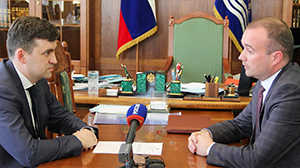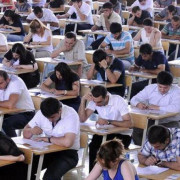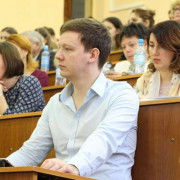Erasmus+
Содержание:
- Какие варианты предлагает Erasmus?
- Чем отличаются Erasmus+ и Erasmus Mundus
- Academic recognition
- Requirements regarding visa and residence permits
- Financing your future is a common problem
- «Опыт Эразмуса»
- Участие
- Преимущества программы
- How is it managed?
- How to apply
- Who can apply?
- Duration
- Find out more
- Erasmus+ в Чехии
- Financial support
- Key Actions
- About
Какие варианты предлагает Erasmus?
Программа Erasmus+ обширна и рассчитана не только на студентов. Она разделена на блоки, каждый из которых имеет свои особенности.
Расскажем обо всех по порядку:
KEY ACTION 1: Международная академическая мобильность
Это поездки студентов и преподавателей на короткий/долгий срок для обучения и осуществления научно-исследовательской/преподавательской деятельности. В данном секторе осуществляется деятельность программы «Совместная магистерская степень» (Erasmus Mundus Joint MasterDegrees). Организаторы стремятся к повышению уровня навыков и знаний выпускников. После прохождения программы участник получает «совместную» степень магистра двух вузов (своего и зарубежного).
В этот же сектор включена программа «Учебная стипендия» (Scolarships). Каждая учебная стипендия Erasmus+ запрашивается у вуза-партнера, который и отбирает заявки на студенческий обмен, а отобранные заявки отсылает в зарубежный вуз с предоставлением всей необходимой информации о студенте.
Чтобы узнать, есть ли долгосрочная и/или краткосрочная студенческая мобильность по программе Erasmus+ у конкретного вуза, необходимо:
- Найти раздел международной академической/студенческой мобильности;
- Уточнить информацию о каталоге программ текущего года и условиях получения данной стипендии у каждой конкретной программы.
В этом же секторе осуществляется программа студенческих стажировок, а также международных мобильностей преподавателей (Staff mobility), в процессе которых участник программы может совмещать преподавательскую и учебную деятельность.
KEY ACTION 2: Сотрудничество для нововведений и обмен лучшими практиками
Цели проекта:
- Развитие сотрудничества между институтами;
- Содействие расширению инноваций в системе вузов;
- Популяризация научных проектов;
- Разработка и внедрение инновационных методов.
Этот проект предполагает Партнерство по обмену школами (School Exchange Partnerships), для повышения возможности школ-участников работы в международных проектах, а также развитие молодежных инициатив. К сожалению, пока эта практика не очень распространена в России, однако все возможно в будущем!
KEY ACTION 3: Поддержка политических реформ
Организаторы этой программы оказывают материальную помощь для осуществления широкого круга мероприятий, направленных на стимулирование разработки инноваций в области международной политики, а также обмена знаниями в образовании и профессиональной подготовке.
Программа поддерживает перспективные проекты сотрудничества по разработке политических реформ и экспериментам в области европейской политики под руководством организаций высокого уровня и государственных органов.
JEAN MONNET
Программа «Джин Моннет» (Jean Monnet) затрагивает вопросы истории Евросоюза, перспектив и дальнейшего развития, политических и интеграционных процессов. Программа рассматривает проекты, которые подают преподаватели и университеты из разных точек мира.
SPORT
Секция Спорта (Sport) – это поддержка Европейского партнерства в области массового спорта.
Организаторы заинтересованы в развитии карьеры спортсменов. Кроме того, этот проект направлен на расширение «спортивного поля», которое бы затрагивало наибольшее количество людей из разных точек мира, а также на решение проблем, связанных с дискриминацией спортсменов.
Как поступить за границу, если ты из обычной семьи?
08 сен
12012
21
Читать позже
Чем отличаются Erasmus+ и Erasmus Mundus
| Программа по обмену Erasmus+ | Erasmus Mundus | |
| Что за программа | Учеба по обмену | Магистратура на полный срок обучения |
| Статус участника | Участвует как представитель конкретного вуза | Участвует как независимый кандидат |
| Кто может стать участником | Бакалавриат, магистратура, специалитет, аспирантура. | Степень бакалавра или те, кто заканчивают бакалавриат и получат диплом до начала учебы по программе |
| Требование к домашнему университету | Университет обязательно должен быть участником Erasmus+: быть аккредитован, подписал «Хартию Эразмус» | Выпускающий университет может не быть участником программы Erasmus Mundus. |
| Продолжительность | от 3-х до 12 месяцев. Чаще всего один семестр.Студенты-медики до 2-х лет | 1–2 года |
| Где проходит учеба | В одном вузе | Учеба проходит как минимум в двух странах.. Новый семестр — новый вуз |
| Размер стипендии | до 500 евро — на покрытие транспортных расходов; до 800 евро ежемесячно — на покрытие расходов на проживание. Сумма зависит от страны. в которую поедешь | до 9 000 евро в год — оплата расходов на обучение; до 4 000 евро в год — на транспортные расходы и обустройство; 1000 евро в месяц в течение всего срока обучения — расходы на проживание и местный транспорт. |
| Основные требования к кандидатам | Уровень знания английского или национального языка принимающей страны – не ниже В2, Успеваемость выше среднего. | Уровень знания английского или национального языка не ниже В2.Успеваемость выше среднего.Наличие диплома.Грамотное мотивационное письмо |
| Как подают заявку на участие | Офлайн или онлайн в международном отделе своего вуза | Онлайн, на сайте конкретной программы. Разрешено подавать одновременно максимум на 3 программы |
| Кто проводит конкурс и отбирает участников | Вуз, в котором проходишь обучение | Координаторы конкретной программы |
| Что по итогам | Диплом российского университета. Возможен вкладыш или упоминание в дипломе об учебе по обмену | Многосторонний диплом |
Academic recognition
Before the study abroad period:
- You, your sending and receiving higher education institutions must sign a Learning Agreement for Studies to ensure a transparent and efficient preparation of the exchange abroad, as well as to agree on how activities successfully completed abroad will be recognised. This document sets out rights and responsibilities of the various parties
- You will receive the Erasmus+ Student Charter, explaining your rights and obligations with respect to your period of study abroad
After the study abroad period:
-
The receiving higher education institution must provide you and your sending institution with a transcript of records confirming that the agreed programme has been completed and acknowledge the results
-
Your higher education institution must recognise the credits (using ECTS credits or an equivalent system) as agreed in the Learning Agreement before the mobility and count them towards your degree, without any further requirements
-
If your higher education institution is in a Programme country, your mobility period should also be recorded in the Diploma Supplement
Read more on the Guidelines on how to use the Learning Agreement for Studies
Requirements regarding visa and residence permits
Participants in Erasmus+ projects may need to obtain a visa for staying abroad in the Programme or Partner Country hosting the activity. It is a responsibility of all the participating organisations to ensure that the authorisations required (short or long-term stay visas or residence permits) are in order before the planned activity takes place. It is strongly recommended that the authorisations are requested from the competent authorities well in advance, since the process may take several weeks. National Agencies and the Executive Agency may give further advice and support concerning visas, residence permits, social security, etc. The EU Immigration Portal contains general information on visa and residence permits, for both short-term and long-term stays: https://ec.europa.eu/immigration/
Financing your future is a common problem
One of the biggest obstacles to students financing their continued education is money, especially if you want to study abroad. Postgraduate degrees – and experience of living and working in another country – are increasingly essential for building and maintaining a competitive CV.
«Without this Erasmus+ loan, I would have simply been unable to start my studies. It had a huge positive impact on my life.»
A Master’s abroad can provide excellent professional, personal and academic experience – the kind of experience that can give an individual a much-needed edge in today’s global marketplace. But continuing your education should not leave you with unmanageable debt after finishing your degree.
If you’ve been accepted to a master’s course abroad — and are looking for a way to navigate tuition and living expenses – an Erasmus+ Master Degree Loan may help.
«Опыт Эразмуса»
Культурное влияние
Для многих европейских студентов программа Erasmus — это первый раз, когда они живут и учатся в другой стране. Таким образом, он стал культурным феноменом и популярен среди европейских студентов, а затем стал предметом таких фильмов, как французский фильм L’Auberge espagnole и документальный фильм Erasmus 24 7 .
Программа способствует обучению и пониманию принимающей страны, а опыт Erasmus считается как временем для обучения, так и возможностью пообщаться и познакомиться с другой культурой.
Репетиторы часто хотят, чтобы студенты, изучающие такие предметы, как политика или международные отношения, участвовали в программе Erasmus. Это рассматривается как прекрасная возможность учиться за границей, не тратя средства на обучение за пределами Европейского Союза , поскольку гранты, доступные студентам Erasmus, недоступны тем, кто решает покинуть Союз для учебы.
Участие
С момента создания программы Erasmus приняло участие более 9 миллионов человек. Число молодых участников значительно увеличилось с 1987 года. Почти 300 000 в год по сравнению с 3 244 в 1987 году. Испания — это страна, которая позволила большинству людей участвовать в Erasmus с более чем 40 000 в год, опережая Францию , Германию и Италию . Страны, принимающие наибольшее количество студентов, — это Испания, где обучается более 39 000 студентов, а затем Германия. В настоящее время в программе Erasmus участвуют более 4000 высших учебных заведений из 37 стран. В 2012–2013 годах в нем приняли участие 270 000 человек, наиболее популярными из которых были Испания, Германия, Италия и Франция. Студенты Erasmus составляли 5 процентов европейских выпускников по состоянию на 2012 год.
В исследованиях обсуждались вопросы, связанные с отбором в программу и репрезентативностью участников. Некоторые исследования вызвали сомнения относительно инклюзивности программы в зависимости от социально-экономического положения, уровня обучения или академической успеваемости. Таким образом, в одном исследовании анализируются финансовые проблемы и семейное положение студентов Erasmus, и показано, что, несмотря на то, что доступ к программе был умеренно расширен, все еще существуют важные социально-экономические препятствия для участия в программе. Другое исследование выявило то, что кажется неблагоприятным для самоотбора студентов Erasmus на основе их предыдущей академической успеваемости, при этом более успешные студенты с меньшей вероятностью будут участвовать, чем менее успешные. Однако этот случай был основан на количестве четырехсот выпускников только одного испанского университета. И наоборот, одно исследование, в котором подробно рассматривались французские и итальянские студенты, показало, что основным предиктором участия в Erasmus была предыдущая успеваемость студентов, а не род занятий их родителей.
Требования
Программа Erasmus ранее была ограничена кандидатами, которые закончили не менее одного года обучения на высшем уровне, но теперь она доступна и для учащихся средних школ.
Подробности
Студенты, которые присоединяются к программе Erasmus, учатся не менее трех месяцев или проходят стажировку от двух месяцев до академического года в другой европейской стране. Первый случай называется студенческой мобильностью для учебы или SMS , а второй — студенческой мобильностью размещения или SMP . Программа Erasmus гарантирует, что период, проведенный за границей, будет признан их университетом, когда они вернутся, при условии, что они соблюдают ранее согласованные условия. Швейцария была приостановлена как участник программы Erasmus с 2015 года после всенародного голосования по ограничению иммиграции граждан ЕС в Швейцарию. Как следствие, швейцарские студенты не смогут подать заявку на участие в программе, а европейские студенты не смогут проводить время в швейцарском университете в рамках этой программы.
Основная часть программы заключается в том, что студенты не платят дополнительную плату за обучение в университете, который они посещают. Студенты также могут подать заявку на грант Erasmus, чтобы покрыть дополнительные расходы, связанные с проживанием за границей. Студенты с ограниченными возможностями могут подать заявку на дополнительный грант для покрытия чрезвычайных расходов.
Чтобы сократить расходы и повысить мобильность, многие студенты также используют сеть размещения, поддерживаемую Европейской комиссией, CasaSwap, FlatClub, Erasmusinn, Eurasmus , Erasmate или Student Mundial, которые являются бесплатными веб-сайтами, на которых студенты и молодые люди могут арендовать, сдавать в субаренду, предлагать и обмен жильем — на национальной и международной основе. Производным преимуществом является то, что студенты могут делиться знаниями и обмениваться советами и подсказками друг с другом до и после отъезда за границу.
Преимущества программы
Самое главное преимущество — это, конечно, полученный магистерский диплом от нескольких топ-университетов Европы, который признается во всем мире. С таким дипломом есть большая вероятность поступить на работу мечты в любом городе. Также вы получите незабываемый опыт учебы в нескольких странах, плюс узнаете, как устроена жизнь в разных странах. Такой опыт всегда расширяет взгляды и помогает лучше понять как развиваться дальше.
Большинство программ имеют Alumni Network, которые помогают в нетворкинге и поддержанию связи с выпускниками. Таким образом выпускники могут найти работу, получить новые предложения, участвовать в разных конференциях и просто поддерживать общение с выпускниками, при этом получая от них советы и рекомендации. Наконец, у вас есть шанс стать амбассадорами программы в своей стране или по всему миру!
11/20/20
How is it managed?
The Erasmus+ programme is managed by the European Commission), the European Education and Culture Executive Agency, a series of National Agencies in all Programme countries, and a series of National Offices in some Partner countries.
Centralised activities are managed at a European level by the European Commission and European Commission’s European Education and Culture Executive Agency in Brussels, also known as the Executive Agency. Centralised projects are larger and more strategic, designed to tackle specific issues throughout Europe.
Decentralised activities are directly managed by the National Agencies which are located in each programme country, or National Erasmus+ Offices outside the EU. The majority of these projects will be implemented on a national, regional or local level and focus on an exchange between countries.
For more information please visit our How is it Managed? section.
How to apply
Prospective students should apply through the financial institution, the universities or online, submitting the following documentation:
- Certificate of completion of the last degree you have completed prior to the Master degree you are applying for
- A receipt for the enrolment fee OR documentary proof of admission and of the cost of the Master course
Each lending institution will have different terms and conditions – but all institutions will provide interest rates that are significantly lower than commercial rates. Students will therefore need to visit the specific bank or lending institution’s webpage — where they will be able to review specific terms and conditions. These are listed below:
- (outgoing & incoming students from/to Spain)
- Emil Banca Credito Cooperativo (established in the Emilia Romagna region in Italy — outgoing students from Italy)
- QNB Finansbank (outgoing students from Turkey)
- FINS, part of Educativa Group (outgoing students from Romania)
- PBZ — Privredna Banka Zagreb (outgoing students from Croatia)
- University of Luxembourg (incoming students into Luxembourg only)
- University of Cyprus (incoming students into the Republic of Cyprus only)
Who can apply?
Prospective students must:
- Live in a Programme country
- Have completed a Bachelor-level (or equivalent) qualification before applying
- Have been accepted (before applying) to a full Master programme in another country. The university offering the programme must hold the Erasmus+ Charter of Higher Education
The Erasmus+ Master Loan intends to support full Master studies by Programme country residents in a country other than either their country of residence OR the country where they received their first qualification. Students only studying abroad for part of their Master’s may still qualify for an Erasmus+ grant.
Duration
Your study period abroad can last from a minimum of 3 months (or 1 academic term or trimester) to a maximum of 12 months.
You can benefit of an exchange abroad with Erasmus+ multiple times, either as a student or as a trainee, but your total time abroad (study abroad periods included) may not exceed 12 months within one cycle of study.
«Cycle» refers to the level of study as defined by the European Qualifications Framework (EQF)
- First cycle (Bachelor or equivalent) EQF – 5/6
- Second cycle (Master or equivalent) EQF 7
- Third cycle (Doctoral or equivalent) EQF 8
For «one-cycle» courses such as medicine or architecture, you can go abroad with Erasmus+ for as long as 24 months.
Find out more
Make sure you know your rights when you study or do a traineeship abroad.
Students with further questions about taking part in Erasmus+ should check the frequently asked questions before contacting their institution, their National Agencies for Programme countries, and National Offices for Partner countries (where available).
The ESAA — Erasmus+ Student and Alumni Association offers Erasmus+ students and alumni a dynamic forum for networking, professional development and intercultural exchange.
Doctoral students can also receive EU support for periods of research abroad through Marie Skłodowska-Curie Actions.
Video
Erasmus+: opening doors to new careers with Brechje Schwachofer, Ambassador of the Netherlands to Cyprus, on how her Erasmus exchange helped her to pursue a career in the Dutch Foreign Service
Your browser does not support the video tag.
Erasmus+ в Чехии
У студентов чешских вузов больше возможностей для участия в программе обмена Erasmus+. Программа доступна для государственных и частных университетов. Богатый выбор вузов для учебы по обмену: Карлов университет в Праге и Университет Палацкого в Оломоуце имеют около 200 международных соглашений с учебными заведениями со всего мира по программе «Эразмус плюс».
Популярные страны для учебы по обмену среди чешских студентов, Германия, Испания и Португалия.
Сама программа в Чехии имеет больше направлений. Кроме мобильности студентов и сотрудничества в сфере высшего образования, работают программы стажировки и повышения квалификации за границей для учителей школ, воспитателей детского сада, преподавателей вузов.
Чешские вузы открыты для прохождения магистратуры: в проектах Erasmus Mundus участвуют Карлов университет в Праге, Университет Палацкого в Оломоуце, Чешский технический университет в Праге и Пражская академия искусств.
Учеба в разных странах и в интернациональной обстановке расширяет сознание, помогает познать разные культуры и практики
Примеры магистерских программ Erasmus Mundus с участием вузов из Чехии
CDE (Copernicus Master in Digital Earth) — менеджмент в рамках концепции Цифровой земли.
EMMA (Erasmus Mundus Masters Journalism, Media and Globalisation (Mundus Journalism) — журналистика.
EPS (European Politics and Society: Vaclav Havel Joint Master Programme) — европейская политика и общество.
EURCULT (Euroculture: Society, Politics and Culture in a Global Context) — еврокультура: общество, политика, культура в глобальном контексте.
TEMA+ (TEMA+ European Territories: Heritage and Development) — Европейские территории: наследие и развитие.
Пражская Академия искусствPuppeT (PuppeTry – Puppet Artist Erasmus Mundus Joint Master Degree) — кукольный художник.
Financial support
You may receive an Erasmus+ grant as a contribution to your travel and subsistence costs. It may vary according to differences in living costs between your country and the destination country, the number of students applying for a grant, the distance between countries and the availability of other grants.
If you are moving between Programme countries, check with your National Agency and your sending higher education institution for applicable rates. There is also extra support for students going on a traineeship, students from disadvantaged backgrounds or from outermost Programme countries or regions.
Grant levels and fixed rates for exchanges between Programme and Partner countries are published in theErasmus+ Programme Guide.
Irrespective whether you receive an Erasmus+ grant or are an Erasmus+-zero-grant student, you will sign a grant agreement specifying the duration of your mobility, the amount of the grant and other rights and obligations.
If you are mobile within Programme countries, your sending institution will sign your grant agreement and it will be responsible for making all payments.
If you are moving between Programme and Partner countries, the Programme country institution will sign the grant agreement. Your sending and receiving institutions will decide which one will make your payments.
As an Erasmus+ student, you will be exempted from fees for tuition, registration, examinations, and charges for access to laboratories or libraries at the receiving institution. Small fees for insurance or student union membership may still apply.
You may be eligible for additional grants from your institution, government or other sources. Check the European Funding Guide or the Study Portals.
You may also be eligible to apply for a scholarship for a Joint Master programme, or an EU-guaranteed Master Loan for a Master’s degree of up to two years.
Key Actions
Key Action 1: Learning mobility of individuals
Key Action 1 aims to encourage the mobility of students, staff, youth workers, and young people. Organisations can arrange to send or receive students and staff to or from participating countries, as well as organise teaching, training, learning activities.
Key Action 2: Innovation and good practices
Key Action 2 is designed to develop the education, training, and youth sectors through five main activities:
- Strategic partnerships to support innovation in the sector as well as joint initiatives to promote cooperation, peer-learning, and the sharing of experience.
- Knowledge Alliances to foster innovation in and through higher education together with businesses, and beyond, contributing to new approaches to teaching and learning, entrepreneurship in education, and the modernisation of higher education systems in Europe.
- Sector Skills Alliances to tackle skills gap and ensure a better alignment of vocational education and training with labour market needs. There are opportunities to modernise VET, exchange knowledge and best practices, encourage working abroad, and increase the recognition of qualifications.
- Capacity-building projects in the field of higher education to support the modernisation, accessibility, and internationalisation of higher education in Partner Countries.
- Capacity-building projects in the field of youth to support the development of youth work, non-formal learning, and volunteer work, as well as promote non-formal learning opportunities with Partner Countries.
Key Action 3: Support for policy reform
Key Action 3 aims to increase the participation of young people in democratic life, especially in discussions with policy makers, as well as developing knowledge in the fields of education, training, and youth.
Sport
Designed to develop and implement joint activities to promote sport and physical activity, identify and implement innovative activities in the field of sport, and manage not-for-profit events to increase participation in sport.
About
What is it?
The Erasmus+ Programme Guide (version 3 of 12/05/2021), including the Corrigendum of 12/05/2021, is an integral part of the 2021 Erasmus+ Call for Proposals, published on 25/03/2021.
Organisations and institutions seeking funding in the framework of this call must comply with the conditions for participation and funding expressed in this Guide.
The document provides information on:
- the priorities of the programme,
- the actions supported,
- the funding available for different actions,
- detailed information on participation.
Which language versions are available?
The Programme Guide is currently available in the following languages:
Bulgarian | Czech | Danish | German | Estonian | Greek | English | Spanish | French | Italian | Latvian | Lithuanian | Croatian | Hungarian | Maltese | Dutch | Polish | Portuguese | Romanian | Slovak | Slovenian | Finnish | Swedish
In the case of conflicting meanings between language versions, the English version prevails.
How to apply?
Organisations are invited to submit applications online to the National Agency in the relevant country, via the Erasmus+ forms website, or to the European Education and Culture Executive Agency.
The 2021 online application forms and related documents are currently being prepared. Depending on the actions concerned, these will be made available on the websites of either the National Agencies or the European Education and Culture Executive Agency.
For actions managed by the European Education and Culture Executive Agency (EACEA), the relevant documents by action are open for submission on the Funding and Tender Opportunities Portal.
Individuals seeking to apply should contact their organisation, institution, or educational establishment.
Where to find out more?
Organisations seeking further information on the process can contact their National Agency, National Office or the European Education and Culture Executive Agency in Brussels.
2018
- Version 1 (25/10/2017)
- Version 2 (15/12/2017)
- Version 3 (10/08/2018)
The previous versions of the 2017 Programme Guide are:
- Version 1 (20/10/2016)
- Version 2 (20/01/2017), incorporating the corrigendum of 20/01/2017
The previous versions of the 2016 Programme Guide are:
- Version 1 (22/10/2015)
- Version 2 (07/01/2016), incorporating the corrigendum of 15/12/2015
The previous versions of the 2015 Programme Guide (which only apply to the 2015 Erasmus+ Call for Proposals) are available below:
- Version 1 (06/10/2014)
- Version 2 (23/10/2014)
- Version 3 (14/11/2014)
The 2014 Programme Guide is also available for consultation, but applies only to the 2014 Erasmus+ Call for Proposals.




